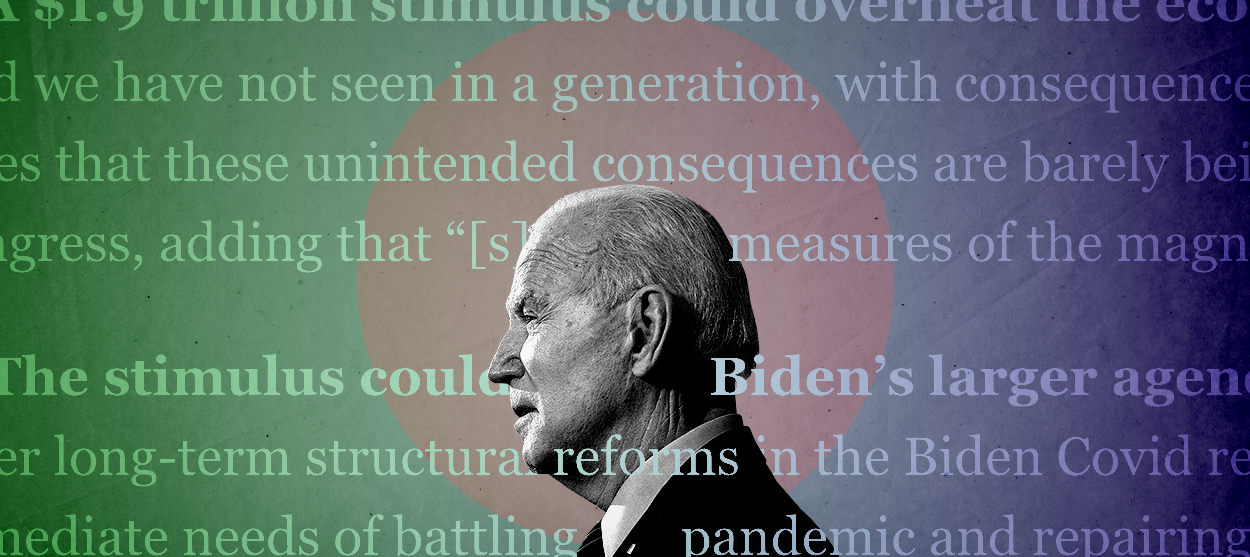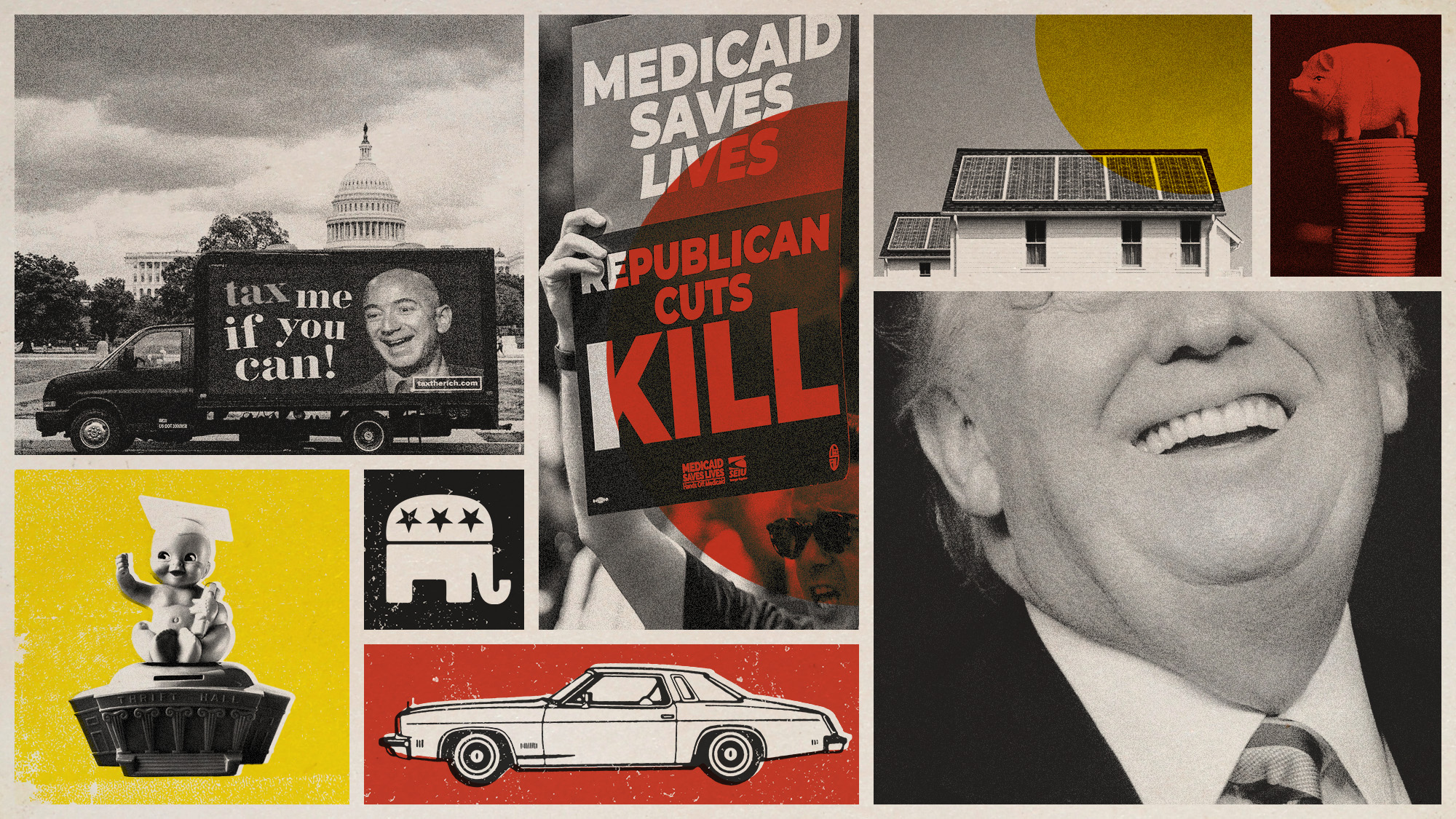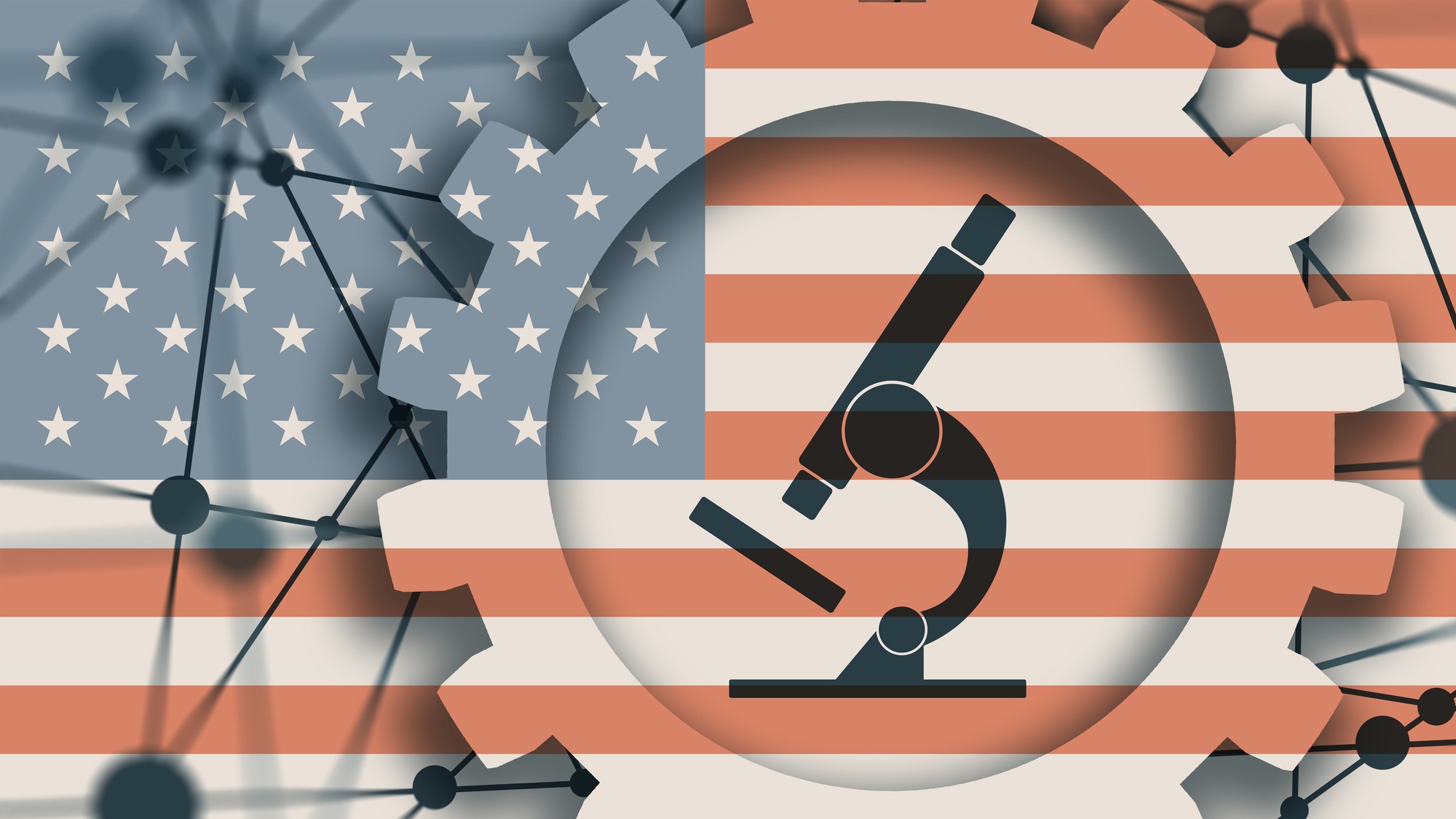Savvy Washington insiders strike again
Biden's relief plan is looking good — if only D.C. games don't get in the way


Senate Democrats whisked through a budget resolution Friday morning, clearing the way for the $1.9 trillion coronavirus relief package proposed by President Biden. The Senate stayed up nearly all night conducting a "vote-a-rama" (a part of the reconciliation process that can sidestep the filibuster, in which amendments can be offered by any senator), and eventually passed the resolution on a 51-50 vote, with Vice President Harris breaking the tie.
Despite some lamentable amendments, retreats, and odd details that will have to be ironed out, overall Biden's proposal is an excellent and badly-needed bill. It might just keep America ticking over until everyone can be vaccinated (currently about 10 percent of Americans have gotten at least one shot).
Things are looking kind of … good? So right on cue, in step the savvy journalists at Politico and economist Larry Summers, playing some obnoxious D.C. insider games and doing their best to ruin the country.
Subscribe to The Week
Escape your echo chamber. Get the facts behind the news, plus analysis from multiple perspectives.

Sign up for The Week's Free Newsletters
From our morning news briefing to a weekly Good News Newsletter, get the best of The Week delivered directly to your inbox.
From our morning news briefing to a weekly Good News Newsletter, get the best of The Week delivered directly to your inbox.
Here's the story. Late on Thursday, Summers published a ponderous op-ed in The Washington Post fretting that maybe the COVID relief package is too big. It might contain so much spending that it will push the economy above its potential full capacity, causing inflation and financial instability, he worried. Then the jokers at Politico's Playbook newsletter (your best source for ill-disguised advertorials and tips on hiding political bribes) repeated his argument. Many "liberal wonks have been whispering about" Summers' argument "for weeks," worrying the package "could harm the economy next year, when Democrats will be defending narrow congressional majorities in the midterms," they write. Politico claimed on Twitter that it was being circulated in the White House as well:
Let me first talk about the merits of the argument, because they shed light on the motivations here. In brief, these worries about "overshooting" the stimulus are completely ridiculous. Jobs data released Friday show the economy is basically stalled out — with unemployment at 6.3 percent, and the fraction of prime-age workers who are employed four points below where it was before the pandemic (just barely above the bottom of the Great Recession), the U.S. is something like 10 million jobs in the hole.
Moreover, as economist Paul Krugman points out, the pandemic relief package is mostly not stimulus per se — it is more aimed at keeping the economy on ice until everyone can be vaccinated. The boost to unemployment insurance and aid to state and local governments, for instance, will partly go unspent if we hit full employment rapidly. Indeed, we may need another round of real stimulus once the vaccines are out. And even if we were somehow to hit full capacity and inflation starts to spike, the Federal Reserve can easily raise interest rates to compensate — a fact Summers bizarrely skates over by limply suggesting they might not for some reason.
However, this argument about exceeding potential deserves close scrutiny. Summers bases his case on the recent Congressional Budget Office (CBO) estimate of economic capacity — that is, how much America can produce without causing spiraling inflation. The only problem with the CBO estimate is that, as J.W. Mason and Mike Konczal argue in detail at the Roosevelt Institute, it is worthless garbage. For one thing, it is impossible to know for sure where full capacity might be when it is far off. It is much wiser to simply stimulate until we see full capacity. For another, the CBO estimate of what full employment looks like is based on the labor market in 2005, adjusted for demographic changes. There is no justification whatsoever for using this year, instead of 2000 or 1967 or 1944 or any other year.
Indeed, at a 2013 IMF conference, one famous economist argued convincingly that the mid-2000s was definitely not a full-employment period, despite the huge housing bubble juicing up spending:
If you go back and you study the economy prior to the [2008 financial] crisis, there's something a little bit odd. Many people believe that monetary policy was too easy. Everybody agrees that there was a vast amount of imprudent lending going on. Almost everybody believes that wealth as it was experienced by households was in excess of its reality … was there a great boom? Capacity utilization wasn't under any great pressure. Unemployment wasn't under any remarkably low level. Inflation was entirely quiescent. So somehow, even a great bubble wasn't enough to produce any excess in aggregate demand. [IMF]
That economist was named Larry Summers.
This weak argument and jarring inconsistency shows this discussion has little to do with economics. This is about political jockeying for influence, and the warped culture of D.C. journalism. Summers has been frozen out of a job in the Biden administration, and so he is characteristically trying to elbow in to the conversation by writing articles about how everyone but him is wrong. In keeping with his prior history as a neoliberal ideologue — Summers was previously best known for bullying a deputy into lowballing the size of Obama's Recovery Act, and preventing the regulation of dangerous financial derivatives — he's worrying about inflation at the worst possible time.
Then the Playbook goofballs, who cover life-and-death political questions as amusing palace intrigue, then gleefully stoke the flames by credulously covering his argument — and apparently exaggerating his influence among "liberal wonks," who dismissed his argument out of hand, and among the Biden team. White House sources quickly denied the Playbook account, and longtime Biden economic adviser Jared Bernstein made the TV rounds lambasting Summers' argument. (Very often when one reads anonymously-sourced Beltway journalism about how somebody is being read in high places or considered for an important job, the source is the very person in question.)
At any rate, the stakes for real life here are not small. The single worst thing Biden could do for his party's prospects in the 2022 midterm elections would be to undershoot the recovery. But with any luck, this will simply be an annoying footnote to history, and perhaps a lesson not to read Playbook even for insider tips.
A free daily email with the biggest news stories of the day – and the best features from TheWeek.com
Ryan Cooper is a national correspondent at TheWeek.com. His work has appeared in the Washington Monthly, The New Republic, and the Washington Post.
-
 How will Trump's megabill affect you?
How will Trump's megabill affect you?Today's Big Question Republicans have passed the 'big, beautiful bill' through Congress
-
 Scientists are the latest 'refugees'
Scientists are the latest 'refugees'In the spotlight Brain drain to brain gain
-
 5 dreamy books to dive into this July
5 dreamy books to dive into this JulyThe Week Recommends A 'politically charged' collection of essays, historical fiction goes sci-fi and more
-
 The last words and final moments of 40 presidents
The last words and final moments of 40 presidentsThe Explainer Some are eloquent quotes worthy of the holders of the highest office in the nation, and others... aren't
-
 The JFK files: the truth at last?
The JFK files: the truth at last?In The Spotlight More than 64,000 previously classified documents relating the 1963 assassination of John F. Kennedy have been released by the Trump administration
-
 'Seriously, not literally': how should the world take Donald Trump?
'Seriously, not literally': how should the world take Donald Trump?Today's big question White House rhetoric and reality look likely to become increasingly blurred
-
 Will Trump's 'madman' strategy pay off?
Will Trump's 'madman' strategy pay off?Today's Big Question Incoming US president likes to seem unpredictable but, this time round, world leaders could be wise to his playbook
-
 Democrats vs. Republicans: which party are the billionaires backing?
Democrats vs. Republicans: which party are the billionaires backing?The Explainer Younger tech titans join 'boys' club throwing money and support' behind President Trump, while older plutocrats quietly rebuke new administration
-
 US election: where things stand with one week to go
US election: where things stand with one week to goThe Explainer Harris' lead in the polls has been narrowing in Trump's favour, but her campaign remains 'cautiously optimistic'
-
 Is Trump okay?
Is Trump okay?Today's Big Question Former president's mental fitness and alleged cognitive decline firmly back in the spotlight after 'bizarre' town hall event
-
 The life and times of Kamala Harris
The life and times of Kamala HarrisThe Explainer The vice-president is narrowly leading the race to become the next US president. How did she get to where she is now?
